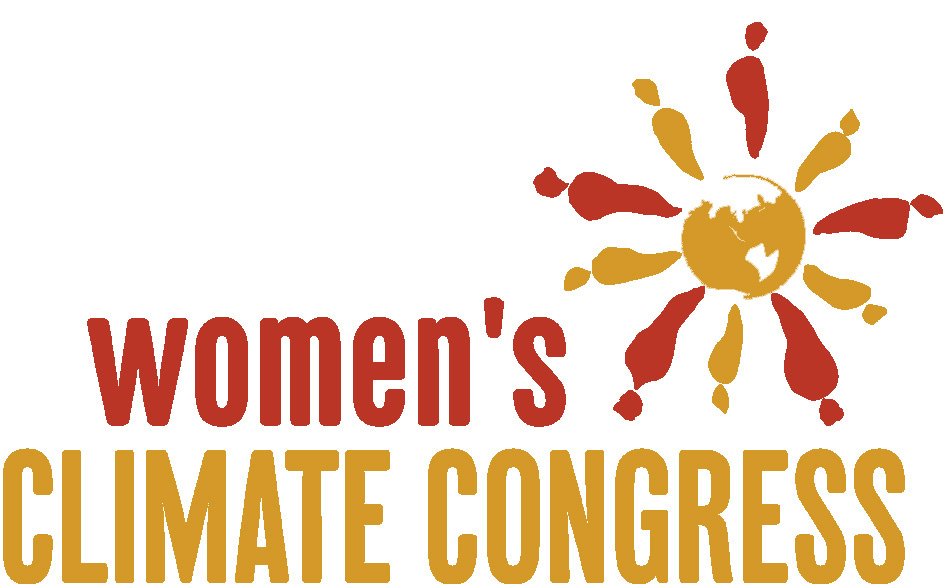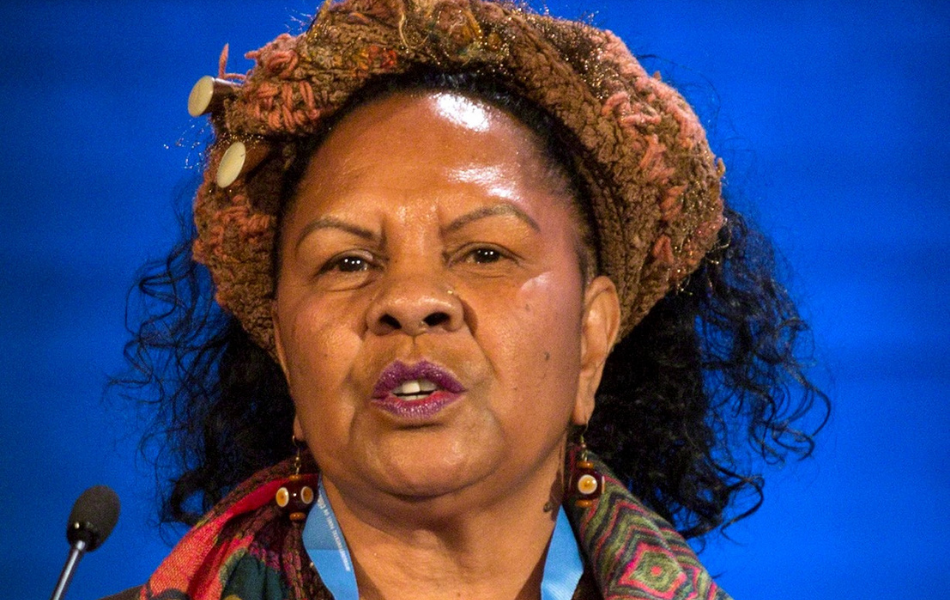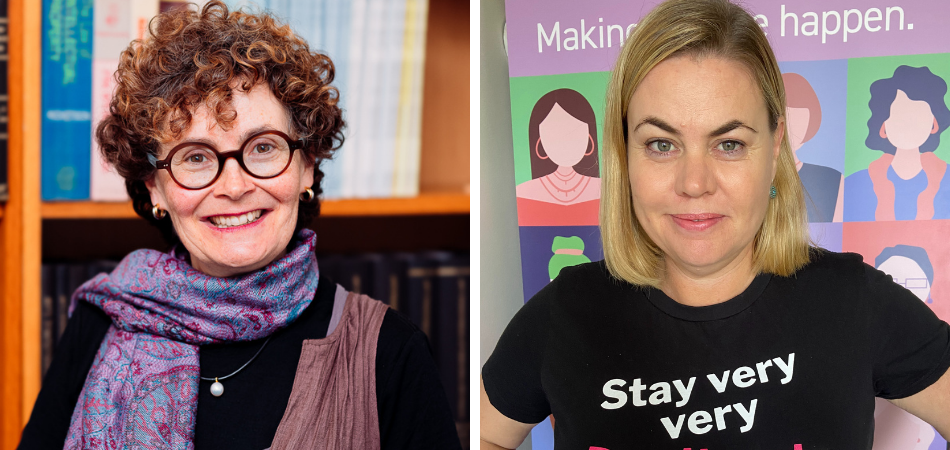Launch of a National Congress of Women brings Australian women together for climate action
Members of the National Congress hosting team with local Elder Dr Matilda House
Have you noticed that women’s voices are getting louder? Community leaders are calling for better care of the aged and vulnerable. There is a ‘great resignation’ underway as employees look for better work options. Very few could have missed the incredible power unleashed under the guidance of Grace Tame, Brittany Higgins and March 4 Justice rallies in recent years.
A new phase for Australia
Australia is entering a phase of justice-focused uprising. And women are leading the charge for us all to pay attention to what is arguably the most important issue of all: climate change and the sustainability of the planet.
Dr Janet Salisbury, the founder of the Women’s Climate Congress, says that women’s leadership is the key to unlocking a better future. This is the time for women to come together to inspire greater leadership and demand better decision making.
"When we're talking about climate change, which is turning into climate chaos, women's leadership is critical for giving planetary health and wellbeing a chance," she says.
Dr Janet Salisbury
Women focused on multipartisan climate action
The Women’s Climate Congress (WCC) was formed in January 2020 after the Black Summer bushfires with the vision for women’s leadership towards multipartisan, collaborative national action to restore climate balance by 2030 — that is, being on track for the planet to stay within a safe limit of global warming for future generations.
National Congress of Women
Inspired by the 1915 International Congress of Women, when 1500 women from warring and neutral countries brought forward far-sighted resolutions to end WW1 and create the conditions for a sustainable peace, the WCC created the National Congress of Women series of events. The launch event, held in November 2021, tackled the theme of ‘Women Rising! Why Women? Why Now?’.
Over 200 participants joined a series of panel speakers and open group discussions about mobilising societal change to address the unsustainable human influence on our planet.
The planet is facing a climate emergency
One of the speakers, Professor Penny Sackett, astrophysicist and former Chief Scientist for Australia summed up the scale of the climate emergency as ‘all-encompassing’.
"If we don’t stabilise the climate, younger generations will face much more severe climate consequences than we are facing now,” she said. “Of course, climate change is only one part of an interconnected problem. The way we treat our land and country is neither good nor sustainable. If we keep on going the way we are, much of the planet will become uninhabitable.”
Lack of female representation and rights
Women's voices on a range of issues have been silenced for too long. Houses of parliament across the country lack female candidates and rarely represent our diverse societies. Out-of-date workplace laws and abhorrent discriminatory and sexist culture persist. There’s a significant gender pay gap and progress is slow to change it. (What is the timeline? 100+ years until parity? No thanks.)
In general, women have lower economic security and provide more unpaid labour than men. Domestic violence and disrespect continues to blight our communities.
Women are angry
As attendees at the National Congress of Women launch event heard that women are angry about all of this. They are also angry about the polarisation around action on climate change that holds back nationally unified and effective action.
Aoibhinn Crimmins, young climate justice activist and university student, summed up how she feels saying she is very angry a lot of the time, despite generally considering herself ‘young and optimistic’.
"I often feel that I just want to lift my head up and scream as loud as I possibly can, and bang my fists against the walls and rip out my hair. And that's, obviously, not very pleasant images but that is how I honestly feel,” she said.
The anger, and the longing for change, was palpable at the National Congress of Women event. But what is this all about? Why isn’t Australia making progress on revolutionising our systems to address equity and societal problems and, importantly, climate change (a threat identified decades ago)?
Professor Penny Sackett / Aoibhinn Crimmins
Imbalance of power: the core of the problem
This isn’t solely a gender-based issue. This imbalance has come from many in powerful positions believing that we, all humans (indeed all life on Earth), are not connected to each other. Simply: that something happening 'over here', doesn’t affect something 'over there'.
Humans have lost the ability to work together for the collective good according to Dr Anne Poelina, a Nyikina Warrwa woman from the Kimberley region of Western Australia, community leader, activist, film-maker and respected academic researcher.
“Life is built on relationships, trust, respect and dignity. We must bring back communityism and multispecies justice,” she said.
"Our governance should be about the greater well-being of our communities where we live and play but we are challenged by laws and public policies that are no longer fit for purpose.
“They're not fit for purpose for Indigenous people. They're not fit for purpose for our environment. This is a great shame for a country that espouses to be the lucky country giving a fair go for all.
“So we have to stand. We have to be accountable, we have to push the boundaries, and see where we can bring our younger people with us. We need to rise up with men. Mother Earth needs us. We need to dream big. We need to bring our husbands, brothers and sons with us,” said Dr Poelina.
Dr Anna Poelina
Individual action does make a difference
While many Australians have felt overwhelmed at times by the scale of the problem, there is a clear antidote. It is taking action, whatever that action may be.
According to Professor Kim Rubenstein, Co-CEO 50/50 by 2030 Foundation, citizenship expert and human rights advocate, there are lots of examples of great progress, it’s just that we may not always see it in the mainstream media.
“We need as individuals to become as active as we can as citizens, whether it be at the next federal election or otherwise, to express that this is not acceptable to us,” she said.
“We have a responsibility to stand up to influence our governance structures, we have that power through our vote. But we can have that also more actively in between elections, to keep these issues at the forefront, to remind our representatives that there are better ways of moving forward to ensure climate change action.”
The people influencing policy must change
Licia Heath, the CEO of Women for Election, agreed and said that her ‘pindrop moment’ came after participating in many marches and rallies.
“I realised, on some occasions, we've been marching on these issues for 30 years.” she said. “And the same faces keep looking back at us, patting us on the head, effectively, each time. Until we change the faces, we're not going to get movement on the policy.”
This insight led her to establish Women for Election to inspire more women to consider running for public office and equip them with the tangible skills they need to run.
It’s time to amplify voices and create impact
The clear message from the National Congress of Women is that women are out there doing amazing things to change our political culture and to take action on climate change. Now is the time to come together to amplify this impact.
Professor Kim Rubenstein / Licia Heath
You’re invited to the National Congress of Women
The next National Congress of Women event is on 28 April 2022 (online), and the series will culminate with a two-day in-person event on 11 and 12 September 2022 in Canberra. More details.
Speakers and artists for the National Congress of Women launch event, 'Women Rising! Why Women? Why Now?'
Thank you
Thank you to all our speakers, artists and attendees at the November National Congress of Women launch event.
Welcome to country:
Elder Dr Matilda House
Speakers and moderators:
Dr Janet Salisbury (Founder, Women's Climate Congress)
Dr Helen Haines MP
Licia Heath, CEO, Women for Election
Professor Penny Sackett, astrophysicist, former Chief Scientist for Australia
Dr Anne Poelina, Traditional Owner and a guardian of the Mardoowarra, Lower Fitzroy River, fellow of Notre Dame/Charles Sturt universities
Angela Priestly, Co-owner, Women's Agenda
Aoibhinn Crimmins, student activist
Professor Danielle Celermajer, Faculty of Arts and Social Sciences, University of Sydney, sociology and social policy researcher and author
Janet Laurence, visual artist
Professor Kim Rubenstein, Director (Academic) 50/50 by 2030 Foundation (currently on leave [April 2022])
Dr Mary Graham, First Nations community leader, academic expert in First Nations history and governance
Natalie Isaacs, Founder, 1 Million Women
Sanaya Khisty, Chief Strategy Officer, Beyond Zero Emissions
Artists:
Johanna McBride, musical direction for A Chorus of Women, songwriter
Dr Sally Blake, artist
A Chorus of Women
Dr Glenda Cloughley, Jungian psychotherapist, songwriter and composer for A Chorus of Women
Courtney Allen, dancer
Hilary Wardhaugh, photographer
Janet Laurence, artist






